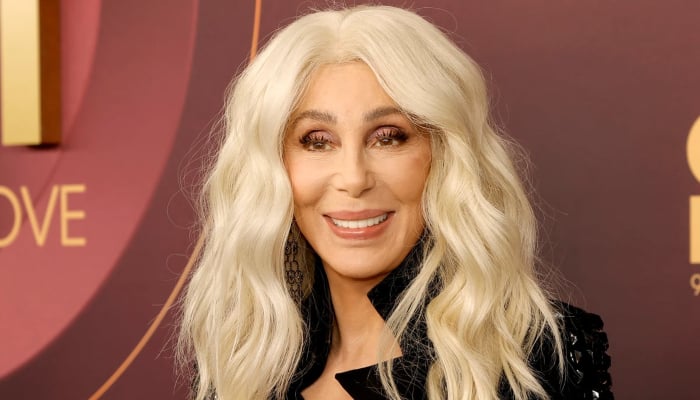

It isn’t all flawless skin and extravagant holidays, influencers also suffer from anxiety behind the scenes
For many of us who aimlessly scroll through social media for hours at a time, influencers seem like larger-than-life beings who embody perfection. With every flawless selfie and envy-inducing travel post, they have become the go-to style gurus, fitness coaches, wellness experts and beauty specialists of the internet.
Exotic vacations, designer wardrobes, glass skin and toned bodies. Influencers often present a lifestyle that's way out of reach for the average person. It’s easy to forget that those perfect moments are often just highlights, not the full story. It’s a carefully balanced mix of filters, photo editing, and professional makeup. For followers like you and me, it sets an unattainable beauty standard.
Research published in the journal Psychology of Popular Media Culture reveals what increased exposure to unrealistic beauty standards on Instagram can actually do. It confuses our social comparison radar because we’re constantly trying to figure out where we stand. If we’re prettier, skinnier, smarter than everyone else. The study author, Danielle Leigh Wagstaff told The Guardian, “With Instagram, we have access to all these idealised images which aren’t always an accurate representation of the world. People tend to post only their best images on Instagram, using filters. We have a false sense of what the average is, which makes us feel worse about ourselves.”
Imagine this: you wake up, hair’s a mess, and you’ve spotted a zit that wasn’t there the night before. Now, you have to take a photo and make it look like you just stepped out of a day spa. For influencers, this is the daily. The pressure to maintain an image of perfection can be intense. Behind those carefully curated feeds lies a world of anxieties that could make even the calmest among us reach for a stress ball.
The constant comparison
Despite their apparent confidence, influencers are not immune to the comparison game. They scroll through their feeds, seeing others in the game with more followers, better engagement, or more lucrative brand deals. Usually this ends with crippling feelings of inadequacy and imposter syndrome. It’s like being in a never-ending high school popularity contest where the stakes are your livelihood.
Brussels-based Pakistani fashion influencer, Amal Sarwar (@amaltiverse on Instagram) is someone who feels the sting of the comparison game exceptionally strongly as a South Asian expat in a predominantly Caucasian city. “Seeing my pictures next to people from Belgium, Russia, France, it doesn’t feel good. Their body types are very different from ours; their skin is different. We’ve been propagated to believe that is THE standard of beauty,” Amal says.
The comparison doesn’t just stop at looks, it comes down to the technical level as well. Amal, whose page boasts over 25,000 followers, reveals she feels it’s impossible to compete with those who have unlimited resources dedicated to their brand. “Some people have professional photographers, editors and content creation teams. When you don’t have any of that, there’s always the anxiety of the finished product not matching up.”
Engagement obsession
Ever find yourself obsessively checking your likes on a post? Or views on a story? Now, multiply that by a thousand. Influencers live and die by engagement rates. Every like, comment, and share matters, and the numbers game quickly becomes an obsession. They refresh their feed more times in a day than most people blink.
The troll toll
Every influencer has their share of internet trolls. These anonymous critics have a knack for finding and exploiting any perceived flaw. Imagine having thousands of people nitpicking every aspect of your appearance and personality. It’s enough to make anyone want to hide under a rock (or at least a heavily filtered Instagram story).
The trolls don’t only come as faceless comments under a post, they also pop up in the form of “aunties” and “uncles” that judge the way you dress. “I stress about the tight-knit community back home. It’s so easy for someone to send a picture of me in a revealing outfit to my family. I’m not too concerned about the online audience, I’m more worried about people I know reacting badly,” Amal says.
Pakistani influencer-turned-actor Hania Aamir has a similar stance on how she views trolling. ““It’s when people close to me, either my manager or my mom tell me that I’m doing something wrong in life, I listen to them because they matter and they’ve seen me grow. Their opinion will matter,” says the Mere Humsafar star.
The never-ending hustle
Being an influencer isn’t just about taking pretty pictures. Many influencers work around the clock, constantly staying on top of trends, brainstorming new content ideas and strategising how to stay relevant. The pressure to always be “on”
For Amal, being “fashion thrill seeker” @amaltiverse is not a full-time job - she has two of those already. While it may look like influencers have oodles of free time to be testing out different blush pigments in front of a ring light, most of them actually have to hustle at a nine to five. “A lot of us are trying to make ends meet by doing other jobs which makes time in the day very tight, and deadlines even tighter,” Amal says. She also comments on her anxiety balancing authenticity and finances, “You get paid to promote content wearing products that aren’t necessarily authentically you, but you do it for the money because you have to. And there is always this fear that people will see that and mark you as unauthentic.”
Global events
Then there’s always that tightrope that needs to be walked between maintaining a brand in the middle of global tragedies. This tension is particularly acute when it comes to promoting consumer products, like fashion items, during times of crisis. The stark contrast of curated images of idealised lifestyles against the backdrop of tragic news creates anxiety for everyone, not just influencers. Posting a "must-have" resort-wear piece while Rafah is being bombed for the tenth time this week seems extremely tone-deaf.












